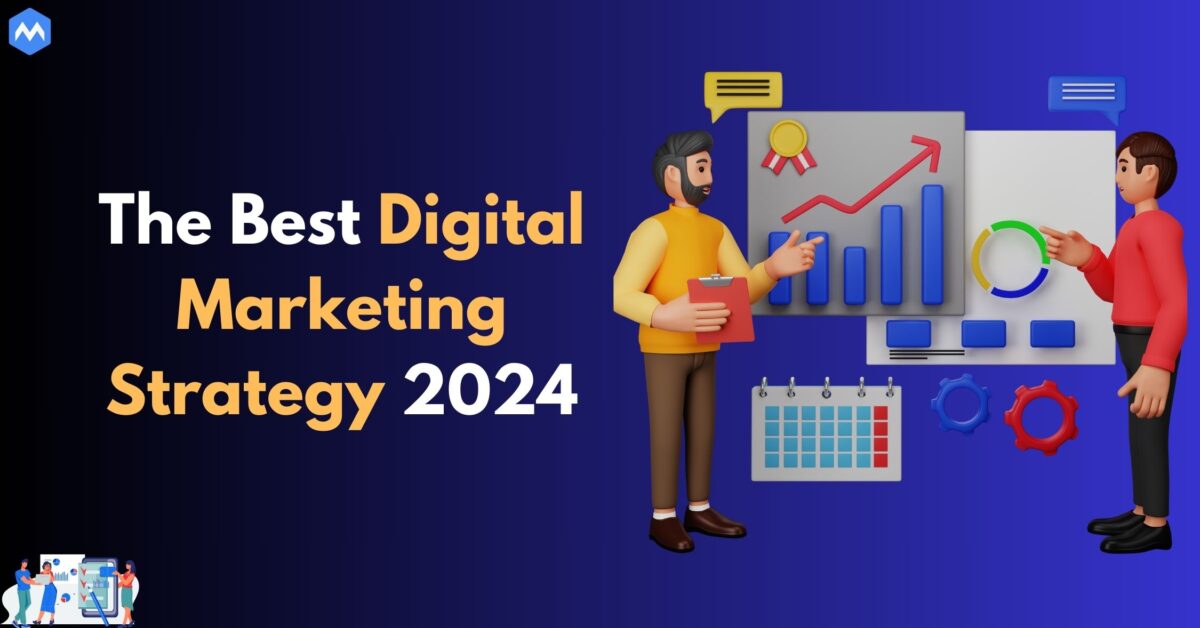How to Structure a Winning Digital Marketing Strategy for 2024
Overview of Digital Marketing in 2024
The evolving landscape and new trends
Digital marketing is witnessing an unprecedented evolution characterized by new trends such as AI powered automation, individualized messaging, and privacy-centered campaigns. This revolution has led to a surge in voice search queries, more video content being presented and augmented reality becoming a mode through which companies engage their customers. Therefore brands need to keep their digital marketing strategies in line with modern behaviors when consumers are becoming more advanced in tech ability to go after necessary adjustments.
Importance of having a well-structured digital marketing strategy
A well-defined marketing strategy has never been more important in this era of high competition within digital platforms. Otherwise, they may lose sight of who they want to sell to while at the same time wasting resources.
Why a Strategy Matters
Benefits of a strategic approach over ad-hoc marketing efforts
The advantages of having strategic rather than haphazard marketing are many. This is because it gives direction, enhances resource allocation efficiency, ensures message consistency and increases the chances of achieving major goals. It also provides a starting point for measuring performance, making improvements and fostering enduring brand equity.
1. Define Your Business Goals
Setting Clear Objectives
Start by identifying your specific business goals that will drive a winning digital marketing strategy. The goals should be connected to the larger business objectives which include increasing sales, enhancing brand visibility and improving customer retention.
Examples of common goals
There are several common digital marketing goals such as:
- Brand awareness: Increasing how far your brand goes.
- Lead generation: Getting potential customers to purchase later on.
- Customer retention: Making existing customers’ ties stronger.
SMART Goals Framework
In order for your goals to be effective, use the SMART framework:
- Specific – having precise and distinct targets
- Measurable – being able to track and measure them
- Attainable – they must be plausible
- Relevant – fit into the bigger picture of the business
- Time-bound – you need a timeline for each target.
2. Understand Your Target Audience
Audience Segmentation
Successful digital marketing relies on a deep understanding of your audience. Segmentation involves dividing your audience into distinct groups based on demographics, behaviors, and interests. This allows for more targeted marketing.
Buyer Personas
Developing detailed buyer personas helps you visualize your ideal customer and tailor your messaging. A persona includes information like age, gender, income, and purchasing behaviors.
Customer Journey Mapping
Customer mapping is important because it helps in understanding how customers experience the product or service offered by the owner (Davis & Waller, 2014). For this reason, customer journey mapping lets you examine the various ways through which clients meet with your brand and hence ensure that each phase in their trip is improved.
Read More: Why SEO is important for your website?
3. Conduct a Competitor Analysis
Identify Key Competitors
Essential for any means of strategic planning is knowing who your competitors are (Thompson & Strickland, 2003). To know major players within a specific niche utilize SEMrush, Ahrefs or Google Alerts to carry out such identification together with observing the way they conduct digital marketing.
SWOT Analysis
Strengths and weaknesses are just some of those things that may be considered while doing SWOT analysis (Opiyo, 2019). This also reveals where one stands with regards to competition since there might be areas where one excels compared to them or possible threats one needs an eye on (Hollis & Pappu 2015).
Benchmarking
Best practices for content marketing in 2024 can be drawn from what works within one’s competitor’s marketing strategies while avoiding mistakes.
4. Choose the Right Digital Marketing Channels
Overview of Key Channels
Here are some principal digital marketing channels:
- SEO (Search Engine Optimization): Local seo services for small business helps in Improving the ranking of your website on search engines.
- Social Media Marketing: Use platforms like Instagram, LinkedIn and Facebook to engage audiences.
- Email Marketing: Keep customers engaged through personalized newsletters.
- PPC (Pay-Per-Click): Paid ads on Google or social media can drive traffic quickly.
- Content Marketing: Create value driven content e.g. Blogs, podcasts and videos.
- Influencer Marketing: Collaborate with industry influencers to boost credibility.
Channel Selection based on audience
Your choice of channels should align with where your target audience spends their time. For instance, Gen Z might be more engaged on TikTok and Instagram while B2B clients might prefer LinkedIn.
Multi-channel vs. Omni-channel approaches
Using a multi-channel strategy within digital marketing ensures that your brand reaches a broader spectrum across different platforms. An omni-channel strategy takes it a step further by creating seamless customer experience for those interacting with your brand from various channels altogether.
5. Develop a Content Strategy
Content Creation
First is quality content that contains the strength of every digital marketing strategy. Therefore, you need to choose the formats that would appeal to your target audience such as podcasting, infographics, videos or blogs. Each format can serve different purposes, from educating to entertaining your audience.
Content Calendar
A content calendar ensures you consistently deliver fresh content to your audience. It helps you plan your posts and campaigns in advance, aligning them with broader business objectives or seasonal trends.
SEO Optimization
To ensure your content reaches its intended audience, it must be optimized for search engines. This involves keyword research, on-page SEO practices, and backlinking strategies to improve visibility.
6. Set Your Budget
Allocating Resources
How you allocate your budget can make or break your digital marketing efforts. Consider distributing your budget across different channels based on your goals, audience behavior, and historical performance.
Maximizing ROI
To optimize return on investment (ROI), you need to combine creativity with analytical thinking. By using data analytics, for example, you can monitor campaign performance and adjust budgets accordingly.
Tools and Software Investments
Most essential tools are Google Analytics for performance tracking, HubSpot for CRM and Mailchimp for email marketing among others. The use of these tools automated several processes and enables one to make decisions grounded on data.
7. Implement and Monitor Your Strategy
Campaign Execution
With a plan defined, its time to launch your campaigns. This may mean setting up advertising campaigns, posting content, posting newsletters or sending emails. Make sure the elements come in alignment with your target objectives.
Tracking and Analytics
Google Analytics, SEMrush and other similar tools can help analyze your campaign performance real-time. Use metrics such as traffic, conversion rates and ROI as indicators of success.
A/B Testing
A/B testing is an effective social media strategies for business growth. It try various components of your campaigns like headlines, images or call-to-action buttons to measure which one gets better results.
8. Review and Adjust Your Strategy
Regular Performance Reviews
Regular reviews are needed for an effective digital marketing strategies for increasing email open and click-through rates. Monthly or quarterly performance assessments enable tracking progress towards achieving desired objectives.
Adaptability and Flexibility
Your strategy should change with changing market conditions. Thus one should be prepared to adjust resource allocation based on data obtained or test new methods.
Learning from Mistakes
Mistakes are part of the process. This helps you refine your approach such that similar mistakes do not happen again in future when looking into what went wrong with a specific campaign.
Conclusion
Identify steps crucial to creating a successful digital marketing strategy 2024. Set precise targets, know your target market and select suitable platforms as the emphasis. In order to keep abreast of a rapidly advancing technological landscape, it is paramount to begin early enough and frequently evaluate your plan.
Industry knowledge helps in speeding up success. For personalized digital marketing strategies made specifically for 2024 and beyond, Metaloop Marketing is one of the top digital marketing agency in india will help you with its unique approach they employ means that you stay up-to-date with happenings in this field as well as have real results to show. Reach out to Metaloop Marketing today and start your journey in digital marketing.



Write a Comment